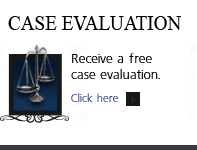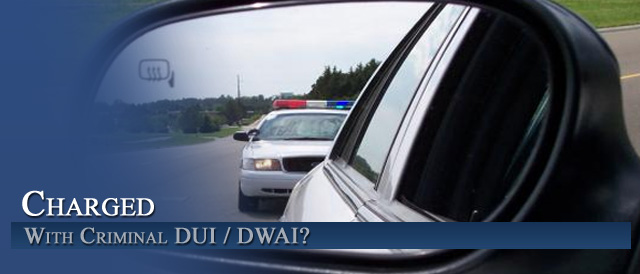
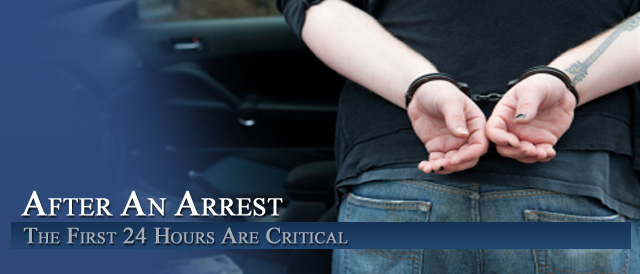

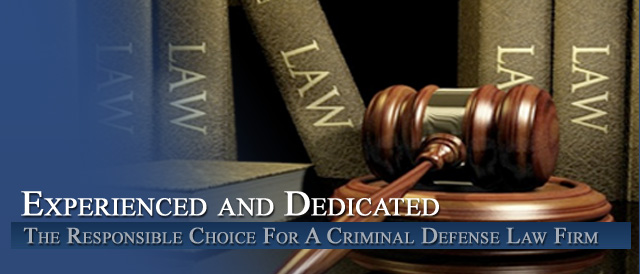
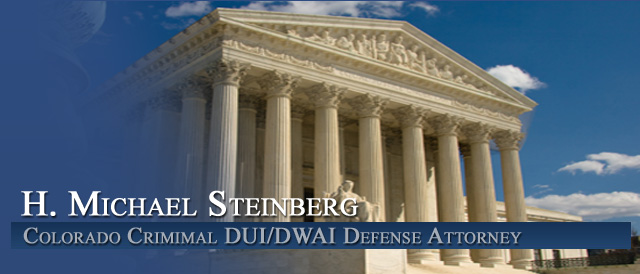
Colorado DUI Probation Violations – Why Time Is Of The Essence
Colorado DUI Probation Violations Lawyer
Colorado DUI – DWAI probation violation cases present complex issues to criminal defense lawyers advocating for their client’s best interests. Issues such as the denial of bail – fast – if not immediate time deadlines, the loss of the privilege of a deferred judgement (resulting in the entry of a conviction), and the need for speedy, if not careful negotiations for “second chance” plea bargains that reinstate grants of probation – all present as challenges to even the most experienced Colorado criminal defense lawyers.
By Colorado Criminal Defense Lawyer – For Probation Violations – H. Michael Steinberg
If you are on DUI – DWAI- DUID probation in Colorado – and are facing a violation of probation – there are multiple options available to the probation officer and to the judge which can result in a satisfactory resolution of the probation violation.
The Typical Conditions of Colorado DUI-DWAI-DUID Probation In Colorado
The conditions of treatment based probation for Colorado alcohol or drug based probation can be both extensive and complicated. Some are simple – do nor drink – do not violate the criminal laws – pay your fines and costs. Some conditions of probation are very “case specific” to the individual offender.
The importance of understanding the individual requirements of your probation sentence cannot be overstated – If you have been sentenced to probation in a Colorado court, it is imperative that you understand the terms of your probation so that you can abide by them.
While the amount of the fine, the amount of jail – if any – and the number of public service hours – will vary with the number of prior lifte time convictions you may or may not have on your record.
First DUI conviction:
A fine between $600 to $1,000; 5 days to 1 year in jail; between 48 and 96 hours of community service; and, 12 points against your license.
Second DUI conviction:
(within 10 years of first): A fine between $1,000 and $1,500; 90 days to 1 year in jail; 60 to 120 hours of community service; and, a 1 year revocation of your driver’s license.
DUI with a previous DWAI conviction:
A fine between $900 and $1,500; 70 days to 1 year in jail; 56 to 112 hours of community service; and a 1 year revocation of your license.
First DWAI conviction:
A fine between $200 and $500; 2 to 180 days in jail; 24 to 48 hours of community service; and, 8 points against your license.
Second DWAI conviction:
A fine between $600 and $1,000; 45 days to 1 year in jail; 48 to 96 hours of community service; and, a 1 year revocation of your driver’s license.
DWAI with a previous DUI conviction:
A fine between $800 and $1,200; 60 days to 1 year in jail; 52 to 104 hours of community service; and, a 1 year revocation of your license.
…..Colorado law provides the following requirements in almost ALL alcohol or drug based traffic convictions.
CRS 42-4-1307(7) DUI – DUID – DWAI – Probation-related penalties.
When a person is sentenced to a period of probation pursuant to subparagraph (IV) of paragraph (a) of subsection (5) of this section or subparagraph (IV) of paragraph (a) of subsection (6) of this section:
(a) The court shall impose, in addition to any other condition of probation, a sentence to one year of imprisonment in the county jail, which sentence shall be suspended, and against which sentence the person shall not receive credit for any period of imprisonment to which he or she is sentenced pursuant to subparagraph (I) of paragraph (a) of subsection (5) of this section or subparagraph (I) of paragraph (a) of subsection (6) of this section;
(b) The court:
[Alcohol and Drug Driving Education]
(I) Shall include, as a condition of the person’s probation, a requirement that the person complete a level II alcohol and drug driving safety education or treatment program, as described in section 42-4-1301.3(3)(c) (IV), at the person’s own expense;
[Monitoring by probation]
(II) May impose an additional period of probation for the purpose of monitoring the person or ensuring that the person continues to receive court-ordered alcohol or substance abuse treatment, which additional period shall not exceed two years;
(III) May require that the person commence the alcohol and drug driving safety education or treatment program described in subparagraph (I) of this paragraph (b) during any period of imprisonment to which the person is sentenced;
[Mandatory Court Appearances While On Probation]
(IV) May require the person to appear before the court at any time during the person’s period of probation;
[An Ignition Interlock Device Placed On Your Vehicle]
(V) May require the person to use an approved ignition interlock device, as defined in section 42-2-132.5(7)(a), during the period of probation at the person’s own expense;
[Abstinence From Alcohol and Drug Monitoring]
(VI) May require the person to submit to continuous alcohol monitoring using such technology or devices as are available to the court for such purpose; and
[Any Other Condition Permitted By Law – (such as the use disulfiram – antabuse)]
(VII) May impose such additional conditions of probation as may be permitted by law.
Colorado DUI Probation Violations- The Denial Of Bond – Bail
Many Colorado judges issue warrants for probation violations that do not provide for the right to bond. Therefore – unlike most other arrests, if you are arrested for violating your probation, you may not be entitled to your freedom while the probation violation is pending. However, in certain instances – a judge may give the defendant a bond if the judge can be persuaded to do so.
When a client is in custody and unable to post a bond – the case must be resolved as quickly as possible – with the goal – of course – of obtaining the best possible result for the probationer.
Colorado does provide for a 14 day deadline for the district attorney to prosecute the violation when a defendant is in custody on a probation violation.
Here is the General Law In Colorado as Regards Probation Violations And Their Prosecution
� 16-11-206. Probation Revocation Hearing
(1) At the first appearance of the probationer in court or at the commencement of the hearing, whichever is first in time, the court shall advise the probationer as provided in section 16-7-206 insofar as such matters are applicable; except that there shall be no right to a trial by jury in proceedings for revocation of probation.
(2) At or prior to the commencement of the hearing, the court shall advise the probationer of the charges against him and the possible penalties therefor and shall require the probationer to plead guilty or not guilty.
(3) At the hearing, the prosecution has the burden of establishing by a preponderance of the evidence the violation of a condition of probation; except that the commission of a criminal offense must be established beyond a reasonable doubt unless the probationer has been convicted thereof in a criminal proceeding. When, in a revocation hearing, the alleged violation of a condition is the probationer’s failure to pay court-ordered compensation to appointed counsel, probation fees, court costs, restitution, or reparations, evidence of the failure to pay shall constitute prima facie evidence of a violation.
The court may, when it appears that the alleged violation of conditions of probation consists of an offense with which the probationer is charged in a criminal proceeding then pending, continue the probation revocation hearing until the termination of the criminal proceeding. Any evidence having probative value shall be received regardless of its admissibility under the exclusionary rules of evidence if the defendant is accorded a fair opportunity to rebut hearsay evidence.
(4) If the probationer is in custody, the hearing shall be held within fourteen days after the filing of the complaint, unless delay or continuance is granted by the court at the instance or request of the probationer or for other good cause found by the court justifying further delay.
(5) If the court determines that a violation of a condition of probation has been committed, it shall, within seven days after the said hearing, either revoke or continue the probation. If probation is revoked, the court may then impose any sentence or grant any probation pursuant to the provisions of this part 2 which might originally have been imposed or granted.
A Defendant’s Rights In A Colorado Probation Violation Hearing – Minimum Due Process
The following “minimum requirements of due process” at parole or probation revocation hearings are required:
(1) Written notice of the claimed violations of probation;
(2) disclosure to the probationer of evidence against him;
(3) opportunity to be heard in person and to present witnesses and documentary evidence;
(4) the right to confront and cross-examine adverse witnesses (unless the hearing officer specifically finds good cause for not allowing confrontation);
(5) a “neutral and detached” hearing body such as a traditional parole board, members of which need not be judicial officers or lawyers;
and
(6) a written statement by the fact finders as to the evidence relied on and reasons for revoking probation.
The Rules of Evidence Are Greatly Relaxed – Making The Probation Violation Much Easier To Prove For The Prosecution
A probation violation may be established by hearsay testimony if the offering witness is subject to cross-examination. Basically – a judge is not bound by the strict rules of evidence during a probation revocation hearing.
Early Contact With The District Attorney
Early contact with the DA – before the date of the hearing – in an effort to convince the prosecutor to take a “second chance” approach in the case is not only possible – it is tactically sound.
If you are on a Colorado Deferred Judgement and Sentence – you must not lose the value of the agreement and maintain your right to someday seal – expunge your criminal history. If the DA violates your deferred judgement and sentence and a conviction enters against you – you will lose your ability to seal your record….a draconian long term result.
There Is An Arrest Warrant Out For Me – I Don’t Want To Contact My Probation Officer (PO)
Many of those on probation are aware that they have a warrant outstanding for a violation of their probation. Because of this – they are afraid of reporting to their probation officer for fear of being arrested and being taken into custody. This is a short term strategy – and actually causes more problems because it actually results in ending additional grounds to the probation violation complaint.
The better approach is to retain counsel to immediately contact the prosecutor and attempt to work out their case. While the prosecutor may not speak to a defense lawyer until the probationer has surrendered on the warrant and bond has been set – if a judge permits bond.
If a bail bond is not set – your attorney can appear in court the day following surrender on the warrant and bond can be set at that time and the matter can be resolved at that time.
The Reinstatement Of Your Colorado Probation Terms And Conditions
An experienced Colorado criminal defense lawyer – with years in the courtroom – can find many ways and options that are available to resolve your case. Many alternatives exist that are less restrictive than jail or prison. Your case may make you eligible for house arrest, community service hours, in or out patient treatment program for drugs or psychological issues, GPS ( ankle monitor) monitoring, or – if necessary weekends at the jail, or work release.
Each case is different and unique based upon the individual facts of your case. Call now to set up your free consultation..now
A probation violation is a serious circumstance that happens when a person on probation avoids, omits, or breaks any of the terms or conditions of his or her probation. When your terms are broken, the person serving the probation sentence faces severe consequences and penalties, which include the imposition of a suspended jail sentence, the possibility of additional probation terms, significant fines, a revoked probation or, more significantly, lengthy jail time.
What Happens In A Colorado Probation Violation Hearing?
These hearings are usually brief. They begin with the probation officer describing the violation or violations that are alleged in the complaint a presentation of the testimonial and physical evidence – if any. The probationer is allowed to cross examine the PO and then present evidence the defense on the issue of the alleged violation. In fact – each party has the right to cross-examine witnesses and to examine evidence produced by the opposing party.
The probation officer and the DA have the burden of proving the alleged violations and the standard or “burden” of proof is the civil standard of preponderance of the evidence (51%). Hearsay evidence – which is not admissible at a trial – IS admissible at a probation violation hearings in accordance with applicable Colorado case law.
After the presentation of evidence, both the probation officer and the accused may make a argument to the judge. The judge then allows you to explain your situation and will determine whether he will reinstate the probation or if there will be other penalties for the violation of probation.
Colorado DUI Probation Violations – The Sentence After Your Probation Has Been Revoked
Your Colorado criminal defense lawyer has the right to dispute the allegations against you and even if you made a mistake and it is proven by the prosecutor, still has the right to argue for a less restrictive alternative to revocation or jail. Even if probation officers ask you to give up your right to a hearing – to “waive your rights” – as limited as they be – to a probation revocation hearing, before you decide what to do, you should always speak to an experienced Colorado criminal defense attorney.
Colorado judges in their trial courts have very wide discretion over the sentencing decision. It is nearly impossible to predict with accuracy what any one judge will do in any one case. However speaking to a defense lawyer may outline the possible and probable consequences you face or even when you are in violation of their probation.
A Probation Violation Based On A New Criminal Charge – Compared With A Technical Violation
There are two kinds of probation violations – technical violations and substantive violations.
Technical Violations of Colorado Probation Sentences
A technical violation of a condition of your probation means that you have not complied with 1 of more of the original conditions of your probationary sentence. It is different and while technical violations are grounds for violating your probation – the errors do not amount to a new criminal offense..
Examples of DUI – DWAI Technical Violations Include:Missing on or more drug or alcohol classes
-
A “Hot UA or BA (Testing positive for alcohol or drug use)
-
Failing to attend a scheduled probation officer visit
-
The failure to pay fines and court costs
-
Non – performance of Public Service Hours
-
The failure to attend the MADD Class
-
Substantive Violations of Colorado Probation Sentences
A substantive probation violation occurs when you are arrested for a new criminal offense. One condition of probation is “no new offenses.” The commission of a new crime is the worst way to violate probation as it can lead to dual punishments – punishment for violation of probation and sentencing for the new case. If the new offense is a DUI – the same crime you were on probation for – the prosecutor and the judge will treat your case as the most serious.
Please call our law firm if you have questions about ..
Colorado DUI Probation Violations
H. Michael Steinberg has been a Colorado criminal law specialist attorney for 40 years (as of 2012). For the first 13 years of his career, he was an Arapahoe – Douglas County District Attorney Senior prosecutor. In 1999 he formed his own law firm for the defense of Colorado criminal cases.
In addition to handling tens of thousands of cases in the criminal trial courts of Colorado, he has written hundreds of articles regarding the practice of Colorado criminal law and frequently provides legal analysis on radio and television, appearing on the Fox News Channel, CNN and Various National and Local Newspapers and Radio Stations. Please call him at your convenience at 720-220-2277.
If you have questions about Colorado DUI Probation Violations in the Denver metropolitan area and throughout Colorado, attorney H. Michael Steinberg will be pleased to answer those questions and will also provide quality legal representation to those charged in Colorado with adult and juvenile criminal matters as regards …Colorado DUI Probation Violations.
Other Articles of Interest:
- Violations of DUI – DWAI – Probation In Colorado
- Colorado DUI Law – DUI Probation Violations – Revocation Of Probation
- After The DUI -DWAI – DUID – Colorado Alcohol Based Driving Convictions For Driving Under Revocation, Denial And Restraint 42-2-138
- Colorado’s Habitual Traffic Offender Law – CRS 42-2-206 – Driving After Revocation Prohibited – DAJP
- Colorado Alcohol Treatment Programs – Level I and Level II – Track A-B-C-D


